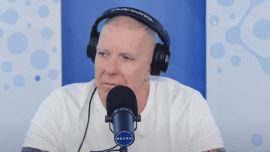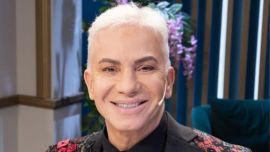Argentina shifted its stance on Venezuela on Wednesday, expressing "deep concern" over alleged human rights violations in the troubled country and calling for "inclusive, transparent and credible" elections as soon as possible.
The comments, delivered by Argentina's UN Ambassador Federico Villegas in Geneza, Switzerland, were a response to the presentation of a new United Nations penned by former Chile president Michelle Bachelet.
The 15-page document by Bachelet, United Nations High Commissioner for Human Rights, was commissioned in September by the UN Human Rights Council. It was presented before the body on Wednesday, a week after Venezuela's Supreme Court, comprised mainly of judges loyal to President Nicolás Maduro, ordered Juan Guaidó to relinquish his position as leader of a main opposition party.
In her report, Bachelet said that the independence of Venezuela's justice system has been "considerably undermined," fuelling impunity and human rights violations. She called on the Venezuelan government to undertake reforms to the Judiciary to ensure "impartiality, transparency, accessibility and effectiveness," criticising a "lack of transparency" in how judges and prosecutors were appointed.
Addressing Bachelet after her presentation, Ambassador Villegas said that Argentina shared "deep concern" over the human rights situation in Argentina, highlighting the "serious political, economic and humanitarian crisis that Venezuela is suffering."
He said the only way to bring an end to Venezuela'a "serious multidimensional crisis" was via a "peaceful, political and negotiated solution."
Villegas also said the crisis had been exacerbated by the coronavirus pandemic.
"We also agree that only constitutional order, democracy and the rule of law will make it possible to guarantee full respect and exercise of all human rights in Venezuela," he said, underlining that Argentina supported the UN's call for an "inclusive political negotiation based on human rights and the restitution of rights."
Urging the Venezuelan government to comply "fully" with the UN office, Villegas said that Latin American nations should increase their efforts to find "a peaceful, political and negotiated solution to this serious multidimensional crisis led by the Venezuelans themselves, through inclusive, transparent and credible elections," he said.
Criticism
Venezuela has been in political turmoil since 2019, when Guaidó declared himself acting president, charging that Maduro's 2018 re-election was fraudulent.
The United States no longer recognises Maduro as president and has been trying unsuccessfully to oust him, in part by recognising Guaido as the country's interim head. Around 60 other countries have followed Washington's lead, though President Alberto Fernández has shifted Argentina's position since taking office in December 2019, taking a less critical line than his predecessor, Mauricio Macri, and emphasising calls for dialogue. Wednesday's statements, delivered by Villegas on behalf of the Argentine government is the noticeable shift in approach.
The move won qualified support from the opposition PRO party, which said that call for "fair and credible elections" was "late but correct."
"The decision reflects the late but correct recognition of the very serious situation in Venezuela, a country that was an example of democracy in our region and a refuge for many Latin Americans who fled the dictatorships that plagued our countries," said the centre-right party created by Mauricio Macri, in a statement titled "Better late than never."
"We congratulate the authorities for this attitude, and we request that it be sustained over time ... in order to support a process that allows free and independent elections to be held without further delay in Venezuela," read the text signed by the party's leader Patricia Bullrich and PRO's foreign policy specialist Fulvio Pompeo.
The report by Bachelet's OHCHR office said it "remains concerned about the lack of independence in the justice system" in Venezuela.
"OHCHR considers that the independence of the justice system is considerably undermined due to insecurity of tenure of judges and prosecutors, the lack of transparency in the process of designation, precarious working conditions, and political interference," the report says. "This situation prevents the Judiciary from exercising its key role as an independent actor in protecting human rights, and contributes to impunity and the persistence of human rights violations."
The UN body charged that alleged victims of human rights violations had difficulty obtaining justice. Venezuela's attorney general should reduce "high levels of impunity for killings in the context of protest, security operations, allegations of torture and ill-treatment, and gender-based violence," the report said.
It made 21 recommendations. Among them was completing judicial reforms announced in January to guarantee the system's "independence, impartiality, transparency, accessibility and effectiveness".
The report said Caracas must investigate alleged human rights violations, including "deprivation of life, enforced disappearance, torture and sexual and gender-based violence involving members of the security forces".
Bachelet also urged Venezuela to publish a comprehensive report on the investigations and criminal proceedings concerning deaths that occurred "in the context of protests in 2014, 2017 and 2019."
Civilians should no longer be tried by military tribunals, it added.
Coronavirus restrictions
Maduro announced on Wednesday a tightening of containment measures in the capital Caracas and neighbouring Miranda state to try to halt the spread of the coronavirus.
According to official figures, Venezuela was one of the least affected countries in Latin America by the virus pandemic for the first couple of months but has seen an alarming rise in cases and deaths in recent weeks. It took 70 days for Venezuela to record its first 1,000 cases but just three days to go from 7,000 to 8,000 cases.
"Due to the increase in Covid-19 cases, because of the illegal entry of people into the country ... I've taken the decision to apply a radical quarantine in Caracas and Miranda state," Maduro said on Twitter.
This new move comes just four days after the government announced a loosening of restrictions in Caracas and other states, allowing banks and other economic activity to reopen.
"We need to give the economy a break," Maduro had said on Saturday.
The day before that, though, Vice-President Delcy Rodríguez had announced that the "state of alarm" providing the legal basis for the quarantine measures would be extended by a month.
Last week, three top government officials revealed they had contracted the coronavirus, including Constitutional Assembly President Diosdado Cabello and Oil Minister Tareck El Aissami.
On Tuesday, Venezuela surpassed 10,000 cases, according to official figures, although the opposition and organisations such as Human Rights Watch believe the true numbers are much greater.
– TIMES/AFP/NA























Comments